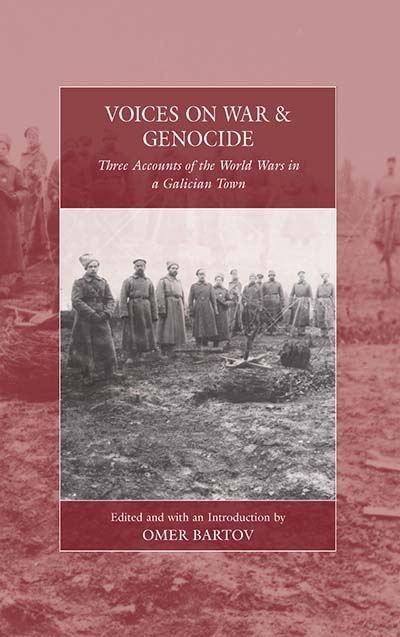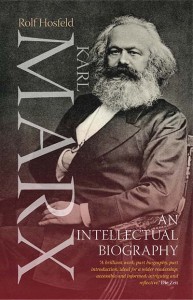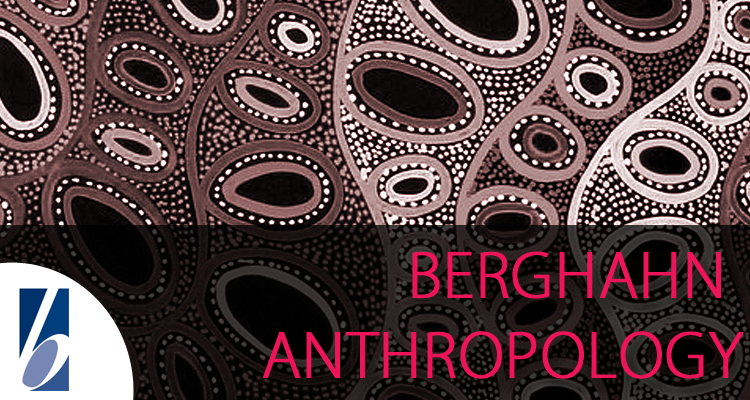Category: Meet the Author
On Archival Access in a Pandemic
Catherine A. Nichols
Exchanging Objects and my broader research agenda considers how and why certain objects left museums, institutions so often associated with preservation, archiving, and keeping. It can be an odd thing, to go to a museum to intentionally study things that aren’t there. When the idea for this research was suggested to me by anthropologist Nancy Parezo, I admit I was first puzzled, then intrigued.
Continue reading “On Archival Access in a Pandemic”Karl Marx as a Young Journalist
By Rolf Hosfeld
Excerpted by Karl Marx: An Intellectual Biography by Rolf Hosfeld, Translated from the German by Bernard Heise
Karl Marx was born May 5, 1818. As a young man he was a journalist and an editor for Rheinische Zeitung, a liberal-socialist newspaper published in Germany. The paper was previously edited by Adolf Friedrich Rutenberg, who favored opinionated feuilletons, before Marx replaced him and gained recognition for his practical, evidence-based approach.
Moses Hess was the first communist Karl Marx personally encountered. Both were from the Rhineland, came from bourgeois families, and were under the influence of Hegel’s philosophy. Marx made an “imposing impression” on Hess upon their first acquaintance in September 1841. After their initial encounter Hess had the sense of having met the “greatest, perhaps the only real philosopher now living,” one who would soon—Hess was referring here to the lecture halls of Bonn University—“draw upon him the eyes of Germany.”
Continue reading “Karl Marx as a Young Journalist”
When They Came For Me: The Hidden Diary of An Apartheid Prisoner
When Apollo 11 landed on the moon in 1969, John Schlapobersky was a political prisoner in Pretoria and knew nothing about it – he was in solitary confinement. When he learnt about the landing, he looked for the moon without success from the window of his cell.
Continue reading “When They Came For Me: The Hidden Diary of An Apartheid Prisoner”Ceri Houlbrook: Love in the Time of Covid
Love-locking, the attachment of a padlock to a public structure, is the forte of the traveler. Although not exclusively a tourist custom, it is a popular practice for people visiting a new place and wanting to leave their mark on it. The love-lock has become the inverted souvenir: left behind rather than taken away, but still a token of experience. And social media brims with photographs and videos of tourists locking their love on bridges and monuments – photos and videos that become the modern-day postcard, conveyed to family and friends back home.
Continue reading “Ceri Houlbrook: Love in the Time of Covid”
THE MOST INFLUENTIAL ANTHROPOLOGISTS TODAY
The team at Academic Influence recently published their list of the most influential anthropologists today, featuring 25 academics from across the globe. As a publisher of Anthropology for over 25 years we at Berghahn Books were delighted to find a number of our authors featured. The complete list is well worth reading in full, but below we are pleased to share 5 anthropologists who have a particularly close connection with the Berghahn family, presented in the order they appear on the Academic Influence list:
Continue reading “THE MOST INFLUENTIAL ANTHROPOLOGISTS TODAY”Birds of Passage: Hunting and conservation in Malta
Mark-Anthony Falzon
My interest in, and love for, nature go back to my early childhood. There was something Victorian about the books I read on butterflies: they contained descriptions and beautiful illustrations of (British, usually) species, but they also taught you how to catch butterflies, kill them using potassium cyanide, and set them on mounting boards. I wondered why our local chemists would not supply me with potassium cyanide, and experimented with alternative methods. My butterfly collection became a source of mounting unease in my teens, when I joined two societies for nature and bird conservation. I realised that, while both were rooted in the same passion, collecting and conservation could be hard to reconcile. By the time I joined the Malta Ornithological Society (now Birdlife Malta), I knew which side I was on. I wrote angry missives to the press, joined street protests and did everything I could to thwart the murderous designs of Malta’s thousands of hunters.
Continue reading “Birds of Passage: Hunting and conservation in Malta”A Taste for Oppression
An interview with Ronan Hervouet following the 2020 Belarus Election
13 August 2020
Continue reading “A Taste for Oppression”Voices on War and Genocide
Omer Bartov, Brown University

This book is derived from research I carried out for my recent monograph, Anatomy of a Genocide: The Life and Death of a Town Called Buczacz (2018). In the course of looking for documents in scores of archives and libraries, as well as seeking personal accounts that would help me reconstruct the “biography” of a small town in eastern Europe, I found three remarkable diaries about events in Buczacz during the two world wars. While the monograph I was writing attempted to capture the individual voices of the town’s residents as a way of understanding how a community of interethnic coexistence was transformed into a site of communal genocide, it was not possible to bring to light the different protagonists’ personal stories as told from their own perspective. This is precisely what Voices on War and Genocide offers.
Continue reading “Voices on War and Genocide”Meet the Author: Gaëlle Fisher
Dr. Gaëlle Fisher’s recent monograph, Resettlers and Survivors: Bukovina and the Politics of Belonging in West Germany and Israel, 1945–1989, explores some of the more complex reverberations of World War II. It is the third volume in Berghahn’s growing Worlds of Memory series, published in collaboration with the Memory Studies Association.
Continue reading “Meet the Author: Gaëlle Fisher”





